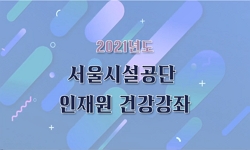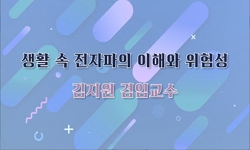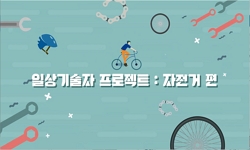본 연구는 한국과 일본의 다문화사회 특징과 다문화교육 정책을 비교하여 다문화교육 정책의 시사점을 파악할 목적으로 수행하였다. 이를 위해 서울과 도쿄에서 시행하고 있는 다문화교육 ...
http://chineseinput.net/에서 pinyin(병음)방식으로 중국어를 변환할 수 있습니다.
변환된 중국어를 복사하여 사용하시면 됩니다.
- 中文 을 입력하시려면 zhongwen을 입력하시고 space를누르시면됩니다.
- 北京 을 입력하시려면 beijing을 입력하시고 space를 누르시면 됩니다.
한국과 일본의 다문화교육 정책 비교연구 : 서울시와 도쿄도의 다문화교육 정책을 중심으로 = A Comparative Study on the Multicultural Education Policy between Korea and Japan : Focusing on the multicultural education policies of Seoul and Tokyo
한글로보기https://www.riss.kr/link?id=T16821240
- 저자
-
발행사항
인천 : 경인교육대학교 교육전문대학, 2023
-
학위논문사항
학위논문(석사) -- 경인교육대학교 교육전문대학 , 다문화교육 , 2023. 8
-
발행연도
2023
-
작성언어
한국어
- 주제어
-
발행국(도시)
인천
-
형태사항
88 ; 26 cm
-
일반주기명
지도교수: 정문성
-
UCI식별코드
I804:41085-200000695602
- 소장기관
-
0
상세조회 -
0
다운로드
부가정보
국문 초록 (Abstract)
본 연구는 한국과 일본의 다문화사회 특징과 다문화교육 정책을 비교하여 다문화교육 정책의 시사점을 파악할 목적으로 수행하였다. 이를 위해 서울과 도쿄에서 시행하고 있는 다문화교육 지원정책과 사업을 조사하여 둘 사이의 유사점과 차이점을 찾아 비교 분석하였다. 서울시와 도쿄도의 지방자치단체 차원에서의 다문화교육 정책들을 비교한 결과 두 도시에서 시행되고 있는 지원 사업이 비슷한 양상을 보였다. 서울시는 ⌜다문화가족센터⌟를 통해 자체적인 다문화가족 지원 사업으로 다문화가족 사회통합 지원, 다문화자녀 학습 지원, 다문화가족 맞춤형 돌봄서비스 제공을 하고 있다. 또한 서울시 행정정보, 생활 정보, 취업 정보 등 생활에 도움이 되는 다양한 정보들을 제공하고, 서울시 주요 다문화가족 정책 및 소식을 공유하고 있다. 도쿄도는 NPO법인 ⌜다문화공생센터⌟를 개설하고 외국인 주민들에게 학교 교육에서 부족한 부분을 보완할 수 있는 학습지원 및 생활 지원을 하고 있다. 주요 사업은 다문화 프리스쿨, 다언어 진학 가이던스, 자녀교육정보 프로그램, 다문화교육 및 워크숍, 이주민자녀 교육실태조사가 있다. 활동 내용은 일본어교실, 어린이 지원, 유학생 지원, 생활 상담, 전문 상담, 정보 제공, 국제 교류, 강좌 및 세미나, 외국어 강좌, 어학 자원봉사, 일본어 자원봉사 등이 있다. 한국과 두드러진 차이를 보인 일본의 사업은 ‘쉬운 일본어’의 보급 계발을 통해 직장이나 활동하는 장소에서의 활용을 장려하고, ‘쉬운 일본어 리더’를 양성 연수를 하는 것이었다. 이는 연대와 협력을 통해 구성원들의 공동체 의식을 강화하고 지역사회 활력에 기여하기 위함이다. 도쿄도에서도 다른 지방자치단체와 같이 거주 외국인을 위한 다문화교육 지원 단체를 설립하여 온‧오프라인을 통한 시스템을 구축하고 외국인 주민의 다양한 의견을 수렴하는 것으로 나타났다. 두 도시의 학교 다문화교육 정책들을 살펴본 결과는 정책의 목표는 같지만 시행되고 있는 사업에서는 확연한 차이점을 발견했다. 먼저 서울시교육청과 도쿄도 교육위원회 모두 서울과 도쿄 학생들이 글로벌 시민으로서의 역량 강화를 정책의 목표로 설정하고 있다. 이에 서울시 학교에서는 다문화교육의 참여와 다문화 교육환경 조성을 위한 선도모델로써 ⌜다문화교육 정책‧연구학교⌟를 마련하고, 다문화학생 맞춤형 교육 지원을 추진하고 있다. 이 정책학교는 ‘다문화 친화적 학교 환경 조성’을 목표로 일반학생과 다문화학생 전체에 다문화이해교육을 실시한다. 반면 도쿄도 학교에서는 다문화학생의 학교 적응과 일본어 지도에 대한 지원 사업이 주를 이루고 있었다. 또한 학생 전체에 시행하는 다문화이해교육이나 다문화 친화적인 학교 환경 조성에는 아직 미흡한 것으로 나타났다. 전체적으로 일본의 다문화교육 정책은 다소 추상적인 반면에 한국의 다문화교육 정책은 매우 구체적이며 실천과 효과 및 변화를 추구하였다.
다국어 초록 (Multilingual Abstract)
This study was conducted with the aim of identifying the implications of multicultural education policies by comparing the characteristics of multicultural societies in Korea and Japan with multicultural education policies. To this end, the multicultu...
This study was conducted with the aim of identifying the implications of multicultural education policies by comparing the characteristics of multicultural societies in Korea and Japan with multicultural education policies. To this end, the multicultural education support policies and projects implemented in Seoul and Tokyo were investigated, and the similarities and differences between the two were found and compared. As a result of comparing multicultural education policies at the level of local governments in Seoul and Tokyo, support projects implemented in the two cities showed similar patterns. Through the Multicultural Family Center, the Seoul Metropolitan Government is providing social integration support for multicultural families, learning support for multicultural children, and customized care services for multicultural families as its own multicultural family support project. It also provides various information that is helpful for life, such as administrative information, life information, and employment information, and shares major multicultural family policies and news in Seoul. The Tokyo Metropolitan Government has opened the Multicultural Symbiosis Center, an NPO corporation, and provides foreign residents with learning support and living support to compensate for their shortcomings in school education. The main projects include multicultural free schools, multilingual guidance, children's education information programs, multicultural education and workshops, and surveys on the education status of migrant children. Activities include Japanese language classes, children's support, international student support, life counseling, professional counseling, information provision, international exchanges, lectures and seminars, foreign language courses, language volunteering, and Japanese language volunteering. Japan's business, which showed a marked difference from Korea, was to encourage the use of "easy Japanese" in workplaces and places to work and train "easy Japanese leaders." This is to strengthen members' sense of community and contribute to community vitality through solidarity and cooperation. In Tokyo, like other local governments, a multicultural education support organization for resident foreigners was established to establish an online and offline system and collect various opinions from foreign residents. As a result of examining the school multicultural education policies of the two cities, the goals of the policies are the same, but there is a clear difference in the projects being implemented. First of all, both the Seoul Metropolitan Office of Education and the Tokyo Metropolitan Office of Education set the goal of the policy to strengthen the capabilities of Seoul and Tokyo students as global citizens. Accordingly, Seoul schools have prepared ⌟Multicultural Education Policy and Research School⌜ as a leading model for participating in multicultural education and creating a multicultural educational environment, and are promoting customized education support for multicultural students. This policy school provides multicultural understanding education to all general and multicultural students with the aim of "creating a multicultural-friendly school environment." On the other hand, Tokyo schools mainly supported multicultural students' adaptation to school and Japanese language guidance. In addition, it was found that multicultural understanding education and multicultural-friendly school environment implemented for the entire student were still insufficient. Overall, while Japan's multicultural education policy is somewhat abstract, Korea's multicultural education policy is very specific and pursued practice, effectiveness, and change.
목차 (Table of Contents)
- Ⅰ. 서론 1
- 1. 연구의 필요성과 목적 1
- 2. 연구 문제 4
- 3. 연구의 제한점 5
- Ⅱ. 한국과 일본의 다문화교육 현황과 정책 6
- Ⅰ. 서론 1
- 1. 연구의 필요성과 목적 1
- 2. 연구 문제 4
- 3. 연구의 제한점 5
- Ⅱ. 한국과 일본의 다문화교육 현황과 정책 6
- 1. 한국과 일본의 다문화 현황 6
- 가. 한국과 일본의 다문화사회 전개 7
- 나. 한국과 일본의 중앙과 지방의 다문화 현황 9
- 2. 한국과 일본의 다문화교육 정책 11
- 가. 한국의 다문화교육 정책 14
- 1) 정부와 지방자치단체의 다문화교육 정책 14
- 2) 교육부의 다문화교육 정책 17
- 나. 일본의 다문화교육 정책 26
- 1) 정부와 지방자치단체의 다문화교육 정책 26
- 2) 문부과학성과 교육위원회의 다문화교육 정책 33
- Ⅲ. 연구 방법 41
- 1. 연구 대상 41
- 2. 연구 방법 41
- Ⅳ. 서울시와 도쿄도의 다문화교육 정책 비교 42
- 1. 서울시의 다문화교육 정책 42
- 가. 서울시 자치단체 다문화교육 정책 42
- 나. 서울시교육청 다문화교육 정책 46
- 2. 도쿄도의 다문화교육 정책 51
- 가. 도쿄도 자치단체 다문화교육 정책 51
- 나. 도쿄도 교육위원회 다문화교육 정책 58
- Ⅴ. 논의 64
- 1. 정책 시행의 주체와 그 대상 64
- 2. 서울시의 통일된 정책과 도쿄도의 독립된 정책 65
- 3. 서울시의 다문화 정책학교와 도쿄도의 쉬운 일본어 66
- 4. 다문화이해교육과 국제이해교육 66
- Ⅵ. 결론 및 제언 68
- 참 고 문 헌 71
- 부록 74
- ABSTRACT 86












